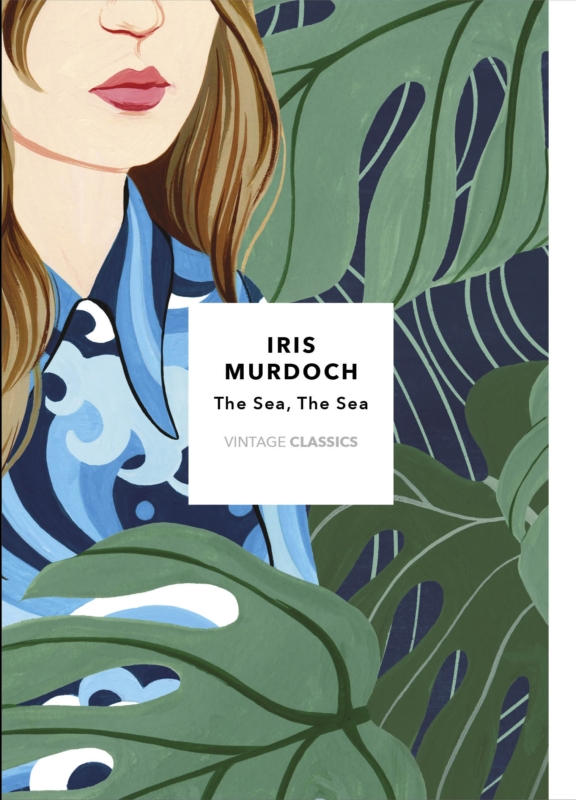I wasn’t sure if I had posted this old piece here. Just found it in my records and thought I should share it….
The end of year vacation is peculiar: it lets one sum up the changes -planetary and otherwise – of a year and muse on the year to come. This year’s finale had to be calm as the year was exhausting; and it had to be close to the sea since I had recently finished reading Iris Murdoch’s fabulous novel, The Sea, The Sea (not to be confused with John Banville’s Booker-winner The Sea, which, as the title suggests, is only half as impressive).
Murdoch’s writing and the right constellation led me to a relatively unknown beach resort at Luzon on the shores of the South China Sea. The area south of the Taiwan Strait all the way up to a point near the equator, including Hainan Island, comprises South China Sea. This was historically the beginning of the ‘oceanic silk route’. Silk trade during the Han dynasty took place on this route that began at Southern China, crossed India and Ceylon, the Red Sea and finally, like all roads, led to Rome. I wasn’t going for the history, I must admit, I was inspired by Murdoch again, who wrote “All artists dream of a silence which they must enter, as some creatures return to the sea to spawn.” Apparently even non-artists can dream of silence, so forgive my pretensions.
After the overdose of consumerism, noise and sheer bling that is Christmas, it was an enormous relief to be welcomed by the roaring silence of the seaside with a backdrop of mighty winds that pass through one’s soul. The resort was located between marshes of majestic coconut trees and had a rustic air contributed to by the faint scent of rice paddies. If all this wasn’t calming enough, it was virtually deserted.
These are the idyllic settings that have inspired the myths of mermaids ? the legendary sea dwelling creatures. Mermen are also heard of but, guess what, have secondary status in sea-lore. Mermaid folklore dates back to the semifish gods of ancient religions, such as the Philistine Dagon and the Chaldaeo-Babylonian belief system. These deities are close to the Greek Nereus, whose upper half was seemingly human, while his lower half was that of a fish. Such myths represent the personification of the powers of the sea. Sadly, despite being hopped upon enthusiasm, we didn’t spot one.
The evolution of our Eden-esque holiday resort was deeply rooted in mermaid lore. In a nearby town eatery, serving crispy fried fish and steamed lobsters, we were also served stories of prehistoric times, how a mermaid had rewarded a human’s kindness by converting the rocky shore into a white sand beach. There were several other stories that ran largely in the vein of mermaids changing their appearance and romancing human beings only to lose their powers if they stayed away from the sea. Romance is hard enough as it is without these added complications.
The resort itself had been developed with complete submission to Mother Nature. Bamboos, coconut tree wood and other materials had been used for the modestly sized relaxing rooms and balconies. It was a pleasure to see that almost all the trees had been left intact. This was in sharp contrast to our tourism bonanza in the Pakistani hills, where centuries-old trees are massacred without a single tremor on that fast dwindling collective conscience.
The first two days on the beach were cloudy but gave us enough time to relax on those shimmering ivory sands and to enjoy swims in clear blue waters, not to mention dips in “natural tidal pools.” The high and low waves played infinite games with one’s tired body, furthered healed by the salty water. Lying on the beach was a pleasure that I had almost forgotten.
I have always had issues with the luxurious ‘resort framework.’ The much frequented Phuket and Bali have always left me with the strange, inexplicable qualm of ‘buying’ proximity to Nature. If we are intrinsically linked to all things natural, why create another shopping mall to get the primordial connection right? The last time I was at another white sand resort, and this was many years ago, was in Mombassa, Kenya. I was with my dear friends, and we hung around the pool-side more than the sea; and consumed goodies all day long. Much that I loved it, I promised myself never to do it again. My subsequent visit to the splendid coastline of Montenegro was therefore restricted to a small cottage that was, at least in theory, free of tourist trappings.
Mercifully, our holiday haven this year had no swimming pool, no elaborate restaurants or bars but instead a basic and direct connection with the sea. There were native cane hammocks to enjoy the breeze; and local sea produce served in abundance. And above all it was a bit of a break from the sun-tan industry as well. Go to any beach and all you see are heaps and mounds of brown wannabes rigorously smothering themselves with chemicals. It is one of life’s little ironies that ‘Fair and Lovely’ bleach creams sell in millions in the subcontinent and I believe there is a male equivalent now appropriately titled ‘Fair and Handsome’ with the advertising message: be fair or remain in dark oblivion!
I cannot but digress further. The Sea, The Sea is a tale of a successful stage persona, Charles Arrowby, who decides to leave his life in the bright lights and retire to a remote cottage by the seaside. Once there, he finds that an old sweetheart, Mary Hartley, also lives in the nearby village and the story then develops with his efforts to woo her back. The sea is a metaphor for an unconscious zone, “the mother of forms,” and a sublime entity hinting at the unpredictability and the splendour of the world that we inhabit, but one that we do not always precisely grasp. Just to remind you, Iris Murdoch (1919-1999) was an acclaimed British writer. Extremely prolific, she wrote twenty-six novels and numerous books, plays, poems and essays before developing Alzheimer’s disease in the mid-1990s. Richard Eyre has directed an eminently gripping film Iris with Kate Winslet and then Judi Dench playing Iris.
Hearing the sound of the sea was not the only boon here. There was the bliss of imposed peace, with no telephone connection or internet access other than the roaming cellular technology that one stayed away from by design. We moved around by road and on motorboats – often precariously hinged little vessels struggling against the mighty tides. The clear blue and turquoise waters mirrored the clear blue skies overhead. We got off at various little islands and lagoons to feel soft sand tickling our soles and tireless mountain and sea breezes. Around us were hills with clouds clinging to them. It was the tropical version of mild winter time.
How the sea is a running parable for life is also illustrated in the words of John Masefield:
I must go down to the seas again, to the vagrant gypsy life,
To the gull’s way and the whale’s way, where the wind’s a whetted knife;
And all I ask is a merry yarn from a laughing fellow rover,
And quiet sleep and a sweet dream when the long trick’s over
From the resort, in the distance, one could also see dotted lines of wind power turbines that rotated gently with the winds. The long white columns and blades, man-made though they were, blended seamlessly into the settings. I only found out on the last day that these turbines provided electric power to the local and nearby towns. Where are the long-promised and much touted solar energy projects in our dear homeland?
Peace, however, can never be permanent. Though our resort had been all but uninhabited upon our arrival, the number of visitors predictably swelled as the New Year’s Eve approached. There were locals as well as a wide array of international tourists. When the adventurous and formidable elderly Mrs Johnson praised the view from her room, I could not help think of that riveting A Room with a View by the great subcontinental friend EM Forster that dwelt on the tourists in Italy, romantic intrigue, class struggles, and much more. Mrs Johnson and I ended up talking at length about the gardens of her country house and how her income was depleted by taxes. The good lady nevertheless manages to travel three months a year and is making up for the little holiday time that was available in her youth. How refreshing it was to hear someone not investing and re-investing in real estate but actually trotting the globe in search of that unknown potion called happiness.
However, in this remote corner of the tropics the real bolt from the blue came in the form of a party of 40 fellow South Asians. All from an Indian business concern in the Far East, they had generously been packed off by their company to take a holiday at the resort. And, of course, packed with them were sacks of atta, besan and lentils. Aloo kay parathaas were served in the main restaurant as well as pakoras and samosaas. As if this was not quite enough subcontinental flavour, Hindi film music was played by the New Year’s DJ given the demand. 2006 was brought in on booming waves of Kajra Re and Dhoom Macha Hai along with a lot of manic techno-bhangra. Mrs Johnson was slightly uneasy and confided that she had known better New Year parties. I tried to fob her off with platitudes: “Madam”, I said, “the world has changed and will change further.” Mrs Johnson was not overly amused.
After our initial reserve, which was not through a direct horror of the Indians, but more so to preserve our isolation, we ended up mingling with the neighbours who were all, admittedly, warm and friendly. And since in our part of the world, warmth is expressed most often through food, we were forced to have a second meal on the New Year’s Eve with them: paneer, kidney beans, parathaas and halwa, not to mention the zillion varieties of achaars and chutneys. The group was representative of all age categories from grandmas to babies and there was much visible Indian-ness: from the kiyonke saas bhee kabhee bahu thee tension to vegetarianism and non-veg groupies.
After we’d eaten ourselves silly, we escaped the hullabaloo at the farthest corner of the beach and lay there once again to immerse ourselves in the clear night sky. During this vacation, I spotted Venus after years. Living in polluted gutters, one forgets how to dream of the stars. Urban jungles can be pretty grim. Tracing the Milky Way on the last night of 2005 was exhilarating. It brought back panoramic visions of the Karakoram nights when I lived up north with a bunch of people who turned out to become my life-long friends. Was the sea making me nostalgic? How telepathic that my dear M Hosain sent me Auld Lang Syne as a new year’s present: Should old acquaintance be forgot/And never brought to mind?
I murmured the Chinese poet’s lines to the bright Milky Way sinking into the sea as the night rolled by. Earlier in the evening we had swooned over the amazing sunset of December 31. Watching the sun float on sea waves was the ultimate climax of this vacation and 2005, I guess. Fine, so I enjoy my clichès. One more won’t kill you.
Not content with sunsets and star trekking, the morning of January 1 had a full rainbow over the clear turquoise sea. This glorious morning brought back a Wordsworth poem read ages ago:
My heart leaps up when I behold
A rainbow in the sky:
So was it when my life began;
So is it now I am a man;
So be it when I shall grow old,
Or let me die!
Leaving this island was not easy, and I was reminded of Byatt’s words from The Biographer’s Tale: “As long as we don’t destroy and diminish it irrevocably, the too-much-loved earth will always exceed our power to describe, or imagine, or understand it.”
This article was published in the Friday Times as Letting loose in Luzon



